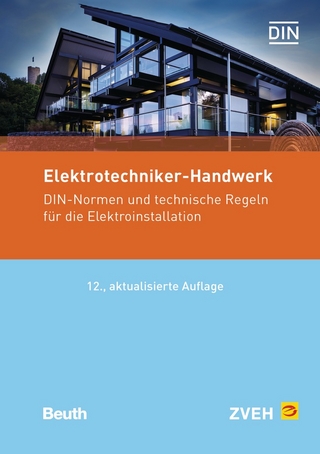
Accelerating the Transition to a Hydrogen Economy
Elsevier - Health Sciences Division (Verlag)
978-0-443-14039-6 (ISBN)
- Noch nicht erschienen (ca. November 2024)
- Versandkostenfrei innerhalb Deutschlands
- Auch auf Rechnung
- Verfügbarkeit in der Filiale vor Ort prüfen
- Artikel merken
Dr. Tonni Agustiono Kurniawan’s degrees include a B.Sc. in chemistry from the Bogor Agricultural University (Indonesia), a M.Sc. in environmental technology from the Thammasat University (Thailand), and a Ph.D. in applied chemical technology from the Hong Kong Polytechnic University (China). He is the author of over 130 peer-reviewed publications in ISI-rated journals, 26 conference proceedings, including 9 book chapters and 6 monographs on waste to energy and wastewater treatment. He received the 2010 Green Talent Award from German Federal Ministry of Education and Research (BMBF), the 2013 Young Scientist Award from the World Economy Forum (WEF) (Switzerland), and the 2014 Scope-Zhongyu (France) for his outstanding research contribution to the fields of study. Elsevier and Stanford University (US) listed him among the top 2% of highly cited scientists in the field of Environmental Sciences. Majeti Narasimha Vara Prasad is Emeritus Professor in the School of Life Sciences at the University of Hyderabad in India. He has published over 216 papers in scholarly journals and edited 34 books. He received his doctorate in Botany from Lucknow University, India in 1979. Based on an independent study by Stanford University scientists in 2020, he figured in the top 2% of scientists from India, ranked number 1 in Environmental Sciences (116 in world). He is also serving as reviewer in many scientific journals. He is professional member of National Institute of Ecology New Delhi, India, Bioenergy Society of India, New Delhi, Indian Network for Soil Contamination Research, New Delhi. He also completed 20 research projects.
Section I. A Journey of transition towards net zero emission 1. Accelerating a transition to net zero emission in the waste sector 2. Moving towards a net zero emission in the energy sector 3. Sustaining global food security through digitalization 4. Promoting inclusive and sustainable growth through valorization of unused waste 5. Decarbonization in the nexus of waste-food and energy using digital technologies 6. Moving towards a zero-waste society by resource recovery 7. Development, challenges, and opportunities in the applications of low-carbon technology 8. Contribution of circular economy (CE) towards net zero emission and decarbonization Section II Decarbonization through hydrogen economy 9. Development of clean energy technologies for blue economy 10. How Blue Hydrogen Can Help Decarbonize the Economy? 11. Clean Hydrogen: A Versatile Tool for Decarbonization 12. Hydrogen decarbonization pathways 13. Prospects and challenges of hydrogen economy in decarbonization 14. Hydrogen economy: from upstream (production) to downstream (application) 15. Perspective of electrification in hydrogen economy 16. Strategies for achieving carbon neutrality Section III Zero-carbon technology in Hydrogen economy 17. Role of hydrogen in the future development of transportation vehicles 18. Road to Net-Zero: Transition Challenges and Solutions of hydrogen in attaining net-zero CO2 emission 19. New and emerging hydrogen applications, including industrial applications 20. Hydrogen in low-carbon economies and its bottlenecks 21. How Do Fuel Cell Electric Vehicles Work Using Hydrogen? 22. Why Hydrogen Fuel Cells May Transform the Future of Energy?
| Erscheint lt. Verlag | 1.11.2024 |
|---|---|
| Verlagsort | Philadelphia |
| Sprache | englisch |
| Maße | 152 x 229 mm |
| Themenwelt | Technik ► Elektrotechnik / Energietechnik |
| ISBN-10 | 0-443-14039-1 / 0443140391 |
| ISBN-13 | 978-0-443-14039-6 / 9780443140396 |
| Zustand | Neuware |
| Haben Sie eine Frage zum Produkt? |
aus dem Bereich


